
 Our lives and world are shaped by the stories we choose to tell, and how we tell them. That is one reason the study of history is so vital. For it makes a huge difference what we choose to include, remember, and carry forward in the story of ourselves we share. So what story about ourselves and our world do we want to tell, and to carry forward, on this 47th anniversary of the official founding of the Uniting Church in Australia? How does this reflect the vision of church as beloved community which we heard about in our readings (from Ephesians chapter 2.17-22 and John chapter 17.1-11)? And how, vitally, do we see this story developing in the future?
0 Comments
 on wings of an eagle (image by David Clode on Unsplash) on wings of an eagle (image by David Clode on Unsplash) One ancient way of approaching spirituality, especially in the Orthodox Christian traditions, is to speak of three kinds of birdlife. The first of these, sometimes known as the ‘carnal’ life, is represented by farmyard chooks. These birds peck at the dust, clucking around, and sometimes fighting each other: confined to an enclosure, with their products used by others or being fattened up themselves for slaughter and consumption. The second, sometimes known as the ‘natural’ life, is represented by the rooster. This bird, with more intellectual capacity, is able to rise above, and see beyond, the farmyard dust; and, whilst remaining tied to it, is able to influence and manage aspects of the world of the chooks, at least to a degree. The third bird however is the eagle: who flies free, majestic, and far beyond, the limited horizons of both the chooks and the rooster. Not for nothing has the eagle thus been highly revered, across many cultural and faith traditions, not least among many First Nations peoples: being typically regarded as symbolic of great and deep strength, leadership, and vision. Now, there is of course the danger in such analogies of forms of spiritual elitism, a disregard of the ‘ordinary’, and disdain towards the material. Yet, as we hear Isaiah 40 verses 21-31 today, we are encouraged to be lifted up as ‘on eagle’s wings’. So to what kind of bird do we choose to look? What kind of life do we choose?... 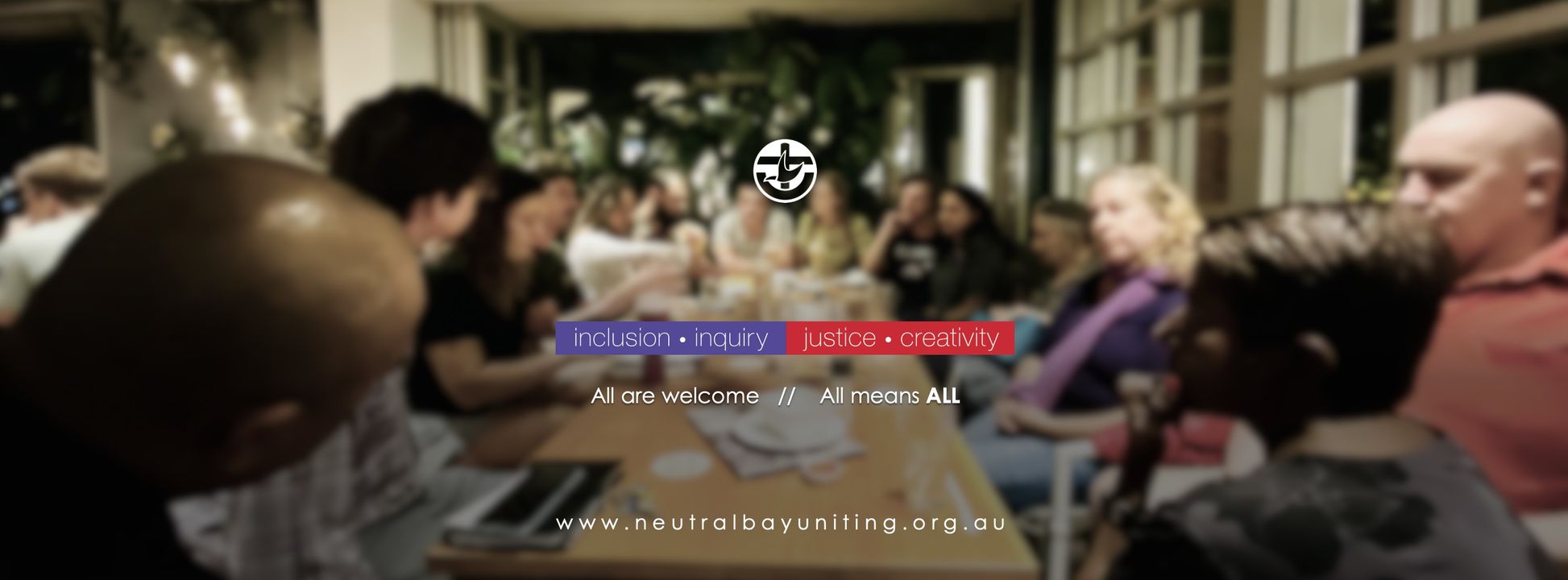 Alex may, or may not, remember the first time we met. It was at the start of a new year in which, finally, I was resolved to affirm my gender identity publicly. Dressed as a female, that Sunday I consequently chose MCC at Petersham as the safest space in Sydney to go to Church – Pitt Street Uniting Church would also have been fine but I already knew too many people there and that would have caused premature attention elsewhere. The MCC worship was uplifting and the community immensely welcoming. Over coffee, I then remember a gorgeous young man speaking beautifully and articulately, passionately and gently, about faith, life, and the possibilities of joy and community for us all, whoever we are. He opened us up to the experiences he was having in his studies in the USA, and some of the wonderful new life of progressive churches there. That young man was Alex, and, little did we know it, but our lives were to intersect frequently in the following years. Not least, after I came out publicly, MCC Brisbane was my second spiritual home, alongside the terrific Milton Anglican community. As Pastor there, Alex helped accompany me through that stage of life, enriching Penny and I, as well as so many others, with his gifts and love. Hopefully, we too offered some mutual support. Indeed, just as Penny and I were honoured to share in Alex’s ordination at MCC, and to walk with him through that time, so the last thing we experienced in Brisbane was a blessing from MCC for our journey into new ministry at Pitt Street Uniting Church, conducted by Alex. It has therefore been such a joy to be reunited with Alex here in Sydney, sharing not only times of struggle – such as the queerphobic attacks upon Pitt Street and the wider LGBTIQA+ community earlier this year, but new steps, such as that for which we gather today. All this too, is part of the shared inspiration which Penny and I, like Alex, draw from the extraordinary text of the book of Ruth which we have just heard… 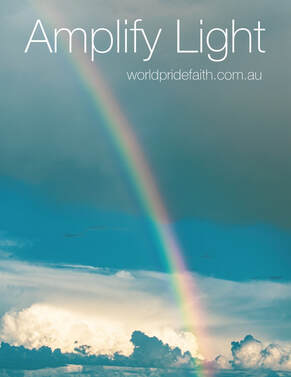 There was once a monk who, whenever he passed a mirror, would look into it, wink, and say: ‘so, you old rogue, who are you today, and what are you up to?’ It is a lovely example of what, at its best, today’s queer theology asks. It is at the heart of what Mark Jordan was saying in our contemporary reading today (‘In Search of Queer Theology Lost’). In a striking manner, it also helps lead us into this week’s great Gospel story of the Transfiguration and its meaning(s) for us. For the monk, queer theology, and our Gospel, each challenge us to deeper, more refreshing, ways of living and understanding life and faith. Each disturbs settled identities. Each offers us fresh insight into God: into divine Love and Be-ing, which can never be confined to any one identity, time or place. As one of my favourite memes has it, ‘God is always transitioning’ – or at least, our understanding of God. As, and when, we grasp that, we also share in transfiguring Love…  My wife Penny and I met at theological college. It was certainly not love at first sight. I was quite introverted, not trying to give away much of who I was, and Penny – well, Penny was very nervous and came across as a terrible caricature of an English middle-class blue stocking type of woman: think, those of you who can remember back that far, of Joyce Grenfell in the old St Trinian’s films. Our college was overwhelmingly full of men, with this being only the second year a handful of women had been admitted. So, when I met Penny in the first hour or so after arriving, I thought: ‘well, if this is how the women are here, I am simply not going to survive!’ I guess that was one factor in our initial relationship: sheer survival in an age and culture still trying to come to terms with the equality of women as a whole, never mind wider gender diversity. It was an earlier reminder that, if Penny and I were to minister, it would be as salt. We would be adding fresh flavour to both the Church and the wider world, seeking to provide healing or simply preservation for some of us, and, from time to time, perhaps irritating others into whose wounds we might be placed to aid healing. Maybe some will have views on how well, or otherwise, we have done that so far. Our hope and prayer is, in the words of Jesus in our Gospel reading today, that we, with others, will never lose out saltiness… 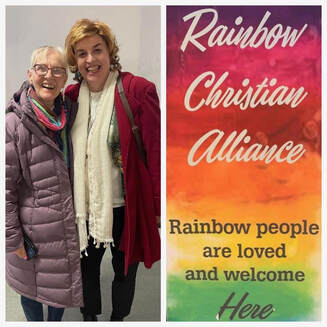 If I was to ask any group of Christians what titles for Jesus they knew and used most, what do you think they/we would come up with? Lord and Christ would probably be the first titles in the list, followed by others such as Saviour, Shepherd, Brother, Friend, Son of God, Son of Man and so on. The Way, the Truth and the Life, together with the Bread of Life, would also be likely to get an early look in. What about Gate, or the Gate, though? I reckon that would pretty low down the list, don’t you? Yet, Gate is a very important title for Jesus, and, arguably, a key title often honoured very much in the breach down the Christian centuries. For, let’s face it, Christians have spent an inordinate amount of time using Jesus as a means, a gate, to exclude and keep people out, or to stop one another going out, and, in the words of Jesus in our Gospel reading tonight, finding good pasture. We don’t even have to be members of the LGBTIQA+ community to know that such gatekeeping is so very much still alive and with us in both our world and its Churches. This is such a great shame, not simply because of the harm caused, but because, as John’s Jesus proclaims, the Gate of Christ is precisely created to open up our lives and world to deeper meaning and more loving relationships. One of the vital gifts of Queer theology and Queer Church spaces is therefore to share Jesus as the Gate to life in all its fullness, and for the followers of Jesus to become ever more alive signs of that holy abundance. That, at least, is at the heart of my reflections on this wonderful bible passage (John chapter 10, verses 7-10) which we just heard… 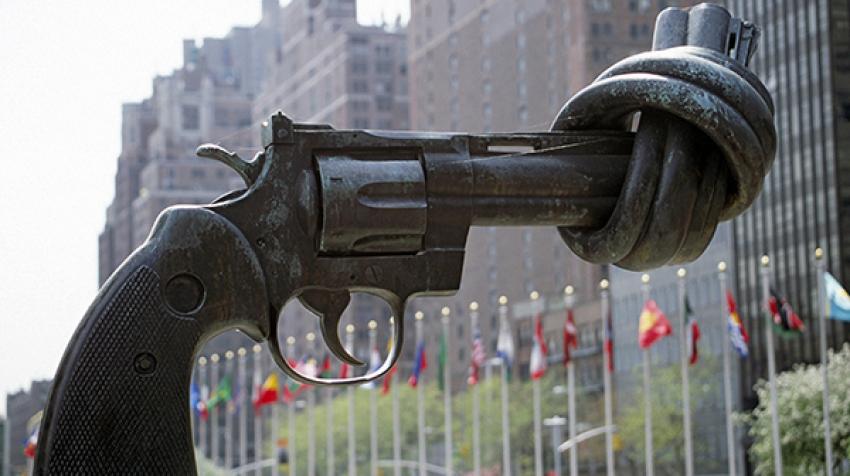 photo: United Nations ‘Towards a Planet-wide Culture of Non- Violence’ photo: United Nations ‘Towards a Planet-wide Culture of Non- Violence’ One of my favourite stories of transgender resistance to oppression comes from India. A group of hijra people were being harassed and humiliated. Of course, this was/is nothing new. Whilst hijra have their gender officially recognised on the Indian subcontinent, they are outcasts among outcasts, typically living on the margins, in the very poorest quarters, and they stir a range of reactions in others. Like all marginalised people, behind their own remarkable brave lives lies terrible and very real fear, and many sad stories: of the sex trade and exploitation, of cruel and/or dangerous castrations, of being cast out and shamed.[1] In one community this shaming grew intolerable. Exclusion, humiliation and actual physical and sexual violence grew exponentially. What could the hijra do? The law, politicians, even religious leaders, did not care. They were actually deeply complicit. Then, after one particularly awful day, the hijra hatched a plan. In the early hours of the morning, after stripping off their undergarments, they would walk, en masse, to the houses of the worst abusers, rattling pots and pans, bells and whistles, and anything they could put their hands on, seeking to wake up the whole neighbourhood, and make the maximum impact. This they did, raising a mighty commotion. Then, they waited whilst the worst offenders, particularly the leading fathers of the community, opened their doors and windows, and came out to see what the terrible din was all about. Standing in line, shoulder to shoulder, the hijra together then took hold of the hems of their dresses, and, with an extraordinary shriek and song of pride, lifted them up, and displayed their genitalia, in all their glory. All those who watched on were taken aback, not only with shock, but with shame. For the hijra had turned the tables on them. The shame now rested on those who were rightly shameful. The powerless had, if only temporarily, transformed the powers that oppressed them, into tools of life and liberation... Sometimes the message of Jesus is inflammatory – there are no two ways about it! Today Jesus expresses this very directly as he says, ‘I came to bring fire to the earth and how I wish it was already kindled!” Now this is not at all comfortable. Most of us prefer to avoid conflict and live life peaceably. We are much more at home with Jesus’s messages about love and peace and kindness, treating everyone with respect and seeking to welcome everyone. So, what are we to do with today’s story about how Jesus comes to bring division, even into the intimate unit of the family?...
an address in favour of blessings after civil ceremonies for other than traditional male and female couples
at the Synod of the Diocese of Brisbane, October 2018... |
Authors
sermons and reflections from Penny Jones & Josephine Inkpin, a same gender married Anglican clergy couple serving with the Uniting Church in Sydney Archives
June 2024
Categories
All
|
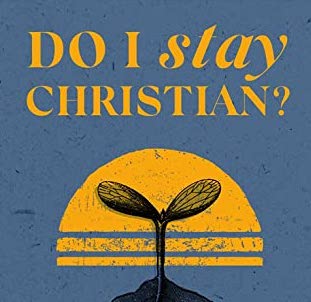
 RSS Feed
RSS Feed